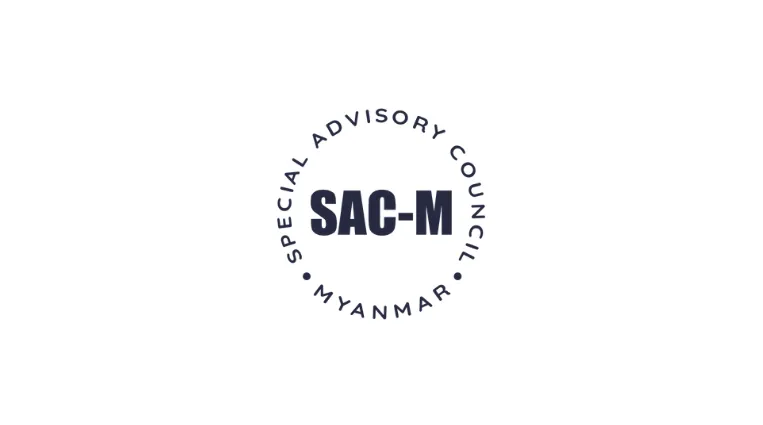New SAC-M Report: How the UN Is Failing Myanmar
03 October 2023

3 October 2023: The United Nations (UN) is failing Myanmar, says the Special Advisory Council for Myanmar (SAC-M). UN member States and their inter-governmental forums are failing to act, the UN Country Team (UNCT) is pursuing the same failed approach of appeasing the military despite growing risks and ever-fewer results, and UN Secretary-General António Guterres has neglected his responsibilities to the Myanmar people as head of the UN Secretariat, a new report by SAC-M has found.
The report, How the UN Is Failing Myanmar, looks at the response from the UN’s component parts – the UN intergovernmental forums, the UN Secretariat and the UN Entities, represented in Myanmar by the UNCT – to the crisis in Myanmar caused by the coup that was launched by the military junta on 1 February 2021. For two and a half years, the junta has waged a campaign of atrocities against the civilian population in Myanmar that has left 2 million people internally displaced and up to 20 million people in need of humanitarian assistance. The UN system is failing to respond in a manner that reflects the gravity of the crisis and the objections of Myanmar civil society to the actions of UN officials are being ignored.
“The junta is the root cause of civil war, poverty, inequalities, and injustices in our country,” said Nai Aue Mon, Program Director, Human Rights Foundation of Monland (HURFOM), a non-profit human rights and pro-democracy organisation in Myanmar. “We have urged UN agencies, regional and international actors to cut ties with the junta, to deliver humanitarian assistance directly to local humanitarian actors; and commit to meaningful engagement and collaboration with Myanmar’s legitimate stakeholders, including civil society organizations and local service providers.”
“They must listen to our voices and stand in solidarity with us by supporting our calls,” Nai Aue Mon added.
The report is written from the perspective of SAC-M’s members as former UN mandate holders on Myanmar, who, during their mandates, called for an inquiry into the involvement of the UN in Myanmar since 2011. The resulting inquiry published its findings in a 2019 report commonly referred to as “the Rosenthal Report”. It found ”systemic and structural failures” within and across the UN system that rendered the UN impotent in the face of massive human rights violations committed by the Myanmar military, including the atrocities committed against the Rohingya in 2016 and 2017. Measures taken by the Secretary-General to implement the Rosenthal Report’s recommendations have been insufficient. The UN’s failures in Myanmar are being repeated.
“During the previous democracy uprising in 1988, the UN tried to use engagement with the military junta and it was a failure. We ended up with military rule for the next 30 years,” said Linn Yaung, a former university teacher in Yangon and current member of Myanmar’s Civil Disobedience Movement. “Now there’s an even more brutal junta led by Min Aung Hlaing. The UN’s strategy did not work then, so why do they think it will work this time?”
SAC-M’s report identifies key ways in which the UN system is failing Myanmar in the current crisis and makes recommendations for change. The UN Security Council must enforce the junta’s compliance with Resolution 2669, including by imposing a comprehensive arms embargo and targeted financial sanctions on the junta, and refer the situation in Myanmar to the International Criminal Court.
The UNCT must redefine its relationship with the junta and should coordinate directly with the National Unity Government, Ethnic Resistance Organisations and resistance authorities for humanitarian access. It should also support – but not co-opt – civil society networks engaged in the existing cross-border humanitarian response. This is the only effective way to reach all of those in Myanmar in need.
Finally, the Secretary-General must fulfil his responsibility as the head of the UN Secretariat to lead the development of a unifying, comprehensive and coherent UN strategy on Myanmar with clear lines of responsibility to monitor and evaluate implementation and ensure accountability for UN actions.
“The humanitarian provision from UN is not being effective and have not reached the people on the ground,” said Musel, a local humanitarian actor with Kyay Latt Myay, a local humanitarian group working in Karenni state of Myanmar. “In Karenni state, people who have been displaced due to the military attacks have not received any support from international humanitarian organizations, particularly from the UN agencies. There are some UN agencies in Karenni state, but they are only active in urban areas. They can only support where the junta allows them to reach… Therefore, I would like to urge the donors to support through cross-border.”
Musel added: “To deliver humanitarian assistance effectively to the ground, the UN agencies must work together with local humanitarian service providers.”
On the day that the military coup was launched, the Secretary-General issued a statement reaffirming “the unwavering support of the United Nations to the people of Myanmar in their pursuit of democracy, peace, human rights, and the rule of law”. That commitment has not been met. The people of Myanmar rightfully expect the UN’s support in their nation-defining struggle to free themselves once and for all from military dictatorship. The UN must end its cycle of failure in Myanmar. The UN must stand on the side of the Myanmar people.
Announcements
28 February 2025
Asian NGO Network on National Human Rights Institutions , CSO Working Group on Independent National Human Rights Institution (Burma/Myanmar)
Open letter: Removal of the membership of the dis-accredited Myanmar National Human Rights Commission from the Southeast Asia National Human Rights Institution Forum

Progressive Voice is a participatory rights-based policy research and advocacy organization rooted in civil society, that maintains strong networks and relationships with grassroots organizations and community-based organizations throughout Myanmar. It acts as a bridge to the international community and international policymakers by amplifying voices from the ground, and advocating for a rights-based policy narrative.